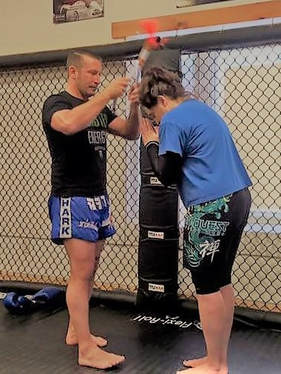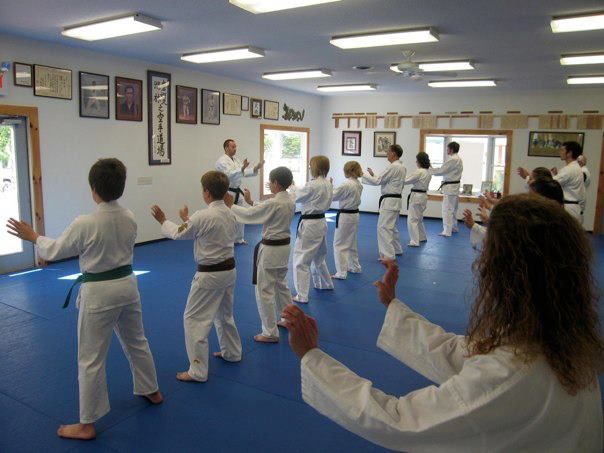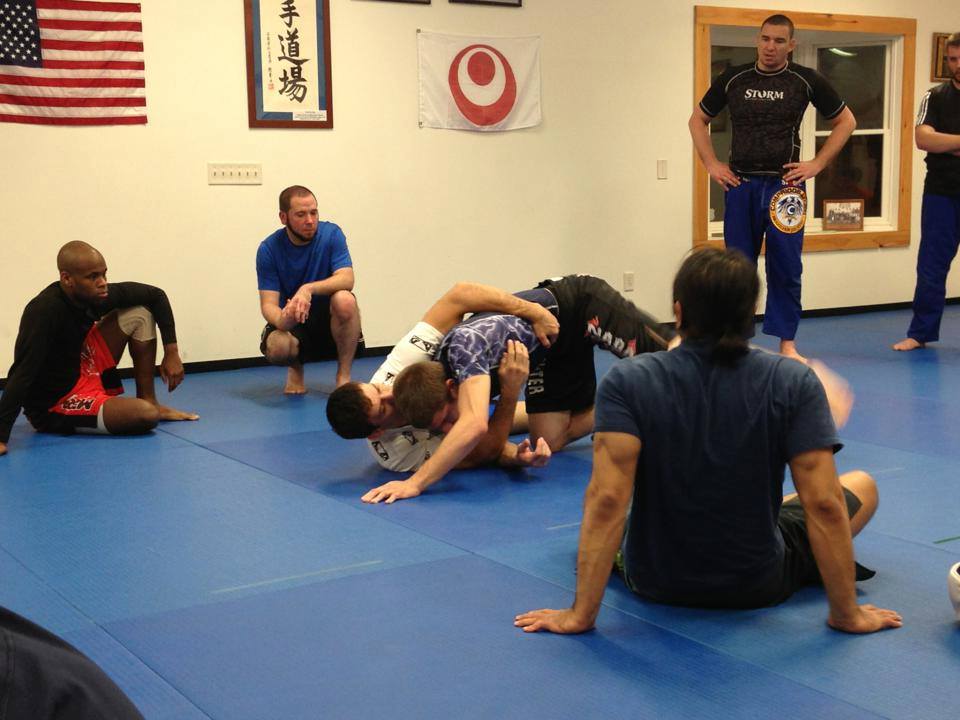
First, it’s a good idea to know what the rank system is for your art. The systems at ZenQuest have a series of colored belts (arm-bands for Muay Thai), and stripes. These start with white and change to progressively darker colors as the student gains experience and moves up the ranks. Each belt or armband will also have a series of stripes on them to indicate the student’s progress towards their next level. Advanced levels are considered significant accomplishments, but also represent responsibilities for the practitioner in teaching and promoting their art.
Newer students benefit by knowing who the highest level students and instructors in the room are for questions. It just makes sense for less experienced students to ask the most experienced people in the room any questions about the things they’re learning. The most advanced people in the room will know the correct way to perform a move, what it’s purpose is, common mistakes to avoid, and even how to explain it all best.
Even more experienced students can fall into unhealthy patterns regarding the ranks in the Dojo. Sometimes when a student begins to enter into higher ranks in their art they will begin to feel that they are above the rules of etiquette. They may start to feel entitled to start doing things their own way, or be selective about their participation in the art. They may feel like they’re in a position to disagree with their seniors, or even challenge them verbally or physically in front of the other students. This is really inappropriate regardless of what level the student is, and a sure fire way to shorten their participation at the gym.
Sometimes students make the mistake of trying to “negotiate” with the instructors on how to perform a move, do a drill, or even the rules of an activity in class. Although questions and suggestions are welcome, the way that strategies and techniques are taught is based on years, decades or even centuries of trial and error. Top instructors are also in the best position to judge whether an adjustment to established standards are beneficial. Even the games and activities for kids are run in a certain way to insure that the students develop basic skills, cultivate a sense of sportsmanship, and are SAFE.
All students should try to avoid coming up with reasons why they can’t or won’t follow instruction from a senior student or instructor. Saying things like “I can’t”, or “I have trouble with this”, or “I’m trying” are just excuses to continue doing something incorrectly. Progress in any martial art is based on what the Okinawan’s call “Kaizen” or gradual improvement. Every time we walk into training, we should do everything we can to be better than the last time we were there. Sometimes our improvements are more noticeable, and other times very small...but, it’s all about constantly moving toward being better.
So, all students should respect the rank system in their art, and trust their instructors to help them progress. They should appreciate the assistance that they’re given. Senior students and instructors should hold up their end of things and do their best to politely help newer students, and build their spirit and enthusiasm in the process. When everyone does their part in respecting the rank system, everyone benefits!



 RSS Feed
RSS Feed